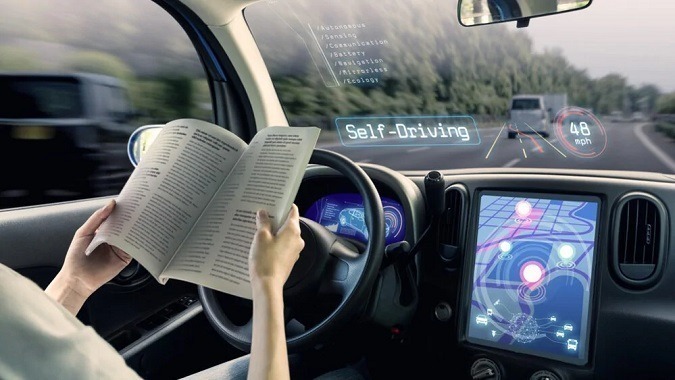Will self-driving vehicles lead to a surge of brain training?

Brain training may be required for occupants of driverless vehicles (Traffic Technology):
“A much-touted perceived benefit of autonomous vehicle technology is that working and a variety of leisure activities could be performed during the time freed up from being behind the wheel.
However, meeting in Warwick, the User Behaviour Forum has heard how reading, emailing, watching films and texting all have been found to induce motion sickness in a significant number of people travelling in a moving vehicle.
A study led by researcher Joe Smyth at WMG, a department at the university, led to all participants experiencing at least some level of unwellness while reading in a self-driving car … The researchers discovered that a series of cognitive tasks, similar to brain training puzzles, was effective in reducing sickness by more than 56% in its first iteration. The possibility that visual, audible and haptic motion cues could also limit the unpleasant feelings is currently being investigated.
“When designing new transport solutions we need to remember to concentrate on the user and not get caught up purely with the technology design,” said Forum chair, Siddartha Khastgir of WMG, University of Warwick.


